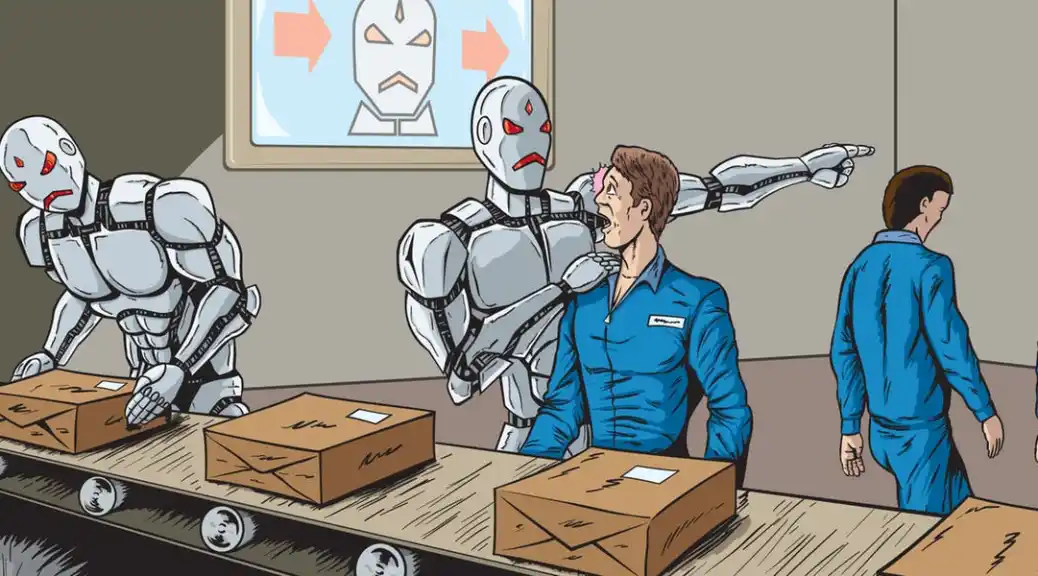Will AI (Artificial Intelligence) Take My Job?

Exploring Jobs Most Likely to Be Replaced by Artificial Intelligence
With AI advancing rapidly, many wonder how their jobs might be affected. From routine tasks to complex data analysis, AI’s capabilities are expanding, leading to real changes in the workforce. Here’s an overview of the jobs most likely to be impacted, why they’re vulnerable, and how workers can adapt.
Jobs Likely to Be Replaced by AI
-
Data Entry and Administrative Roles
Jobs that involve repetitive tasks, like data entry clerks, are particularly vulnerable to AI. Software can automate data collection, filing, and even email responses. For example, Robotic Process Automation (RPA) software can execute tasks such as data entry at much higher speed and accuracy, freeing up human employees for more strategic roles. -
Customer Service Representatives
AI-powered chatbots and virtual assistants are taking on more customer service functions, from answering queries to handling complaints. According to a 2023 study, more than 70% of customers now engage with AI-based chatbots during online interactions, reducing the need for human representatives. -
Retail Cashiers
Self-checkout kiosks and mobile payment apps are increasingly replacing cashiers. AI and machine vision can process payments, scan items, and complete transactions without a cashier. Amazon Go, for instance, uses "just walk out" technology that automatically charges customers for items they take off the shelves, indicating a major shift in retail roles. -
Manufacturing and Warehouse Operatives
Automation in manufacturing has been increasing steadily, with robots performing assembly line tasks like packaging, sorting, and quality control. Warehouses such as those operated by Amazon use robotic arms and automated guided vehicles (AGVs) to handle logistics and inventory management, reducing the need for manual labor. -
Financial Analysts and Stock Traders
In the finance sector, AI is used to analyze vast amounts of data and even make trading decisions in real time. Algorithmic trading and AI-driven financial software analyze market trends much faster than human analysts, leading to fewer entry-level finance roles and more emphasis on AI-enhanced skills. -
Paralegals and Legal Assistants
Legal document review, contract analysis, and research are becoming more automated. AI tools like ROSS Intelligence can analyze legal documents, assist with case research, and generate relevant case law, making legal assistants more efficient but also reducing the demand for entry-level roles in legal research. -
Telemarketers and Sales Agents
AI-driven marketing platforms can send personalized advertisements, conduct A/B testing, and even place calls using natural language processing. Automated telemarketing and email marketing software handle much of the outreach, potentially reducing the need for human telemarketers and low-level sales agents. -
Journalists and Content Writers
AI can now generate basic news reports, write summaries, and even create SEO-optimized blog posts. Platforms like OpenAI’s GPT models produce articles on various topics, though human writers are still crucial for complex narratives and in-depth journalism. AI is more likely to replace roles involving factual, template-driven writing rather than creative work.
Why These Jobs Are Vulnerable to AI
Jobs involving repetitive tasks, predictable patterns, or large volumes of data are particularly susceptible to AI automation. Machines and software can often execute these tasks with greater efficiency, speed, and accuracy than humans.
However, roles that involve creativity, complex decision-making, and high levels of empathy are harder to automate. For instance, careers in healthcare (like nurses, pharmacist and doctors), education, and the arts continue to rely heavily on human expertise.
How Workers Can Adapt
-
Upskill in Technology and Data Literacy
Familiarizing yourself with AI, data analysis, and machine learning basics can make you more valuable, even in fields where automation is increasing. -
Focus on Soft Skills
Skills such as emotional intelligence, creativity, and critical thinking remain crucial in roles that AI cannot replicate. Employees in roles impacted by AI should focus on developing these human-centered skills. -
Consider AI-Adjacent Roles
Many positions are emerging around the use, maintenance, and ethical development of AI, from data science and AI engineering to AI ethics and policy management.
While AI will replace certain tasks and jobs, it also brings new opportunities, encouraging the workforce to adapt and find ways to complement technology. For those in AI-susceptible roles, focusing on unique human skills and pursuing continuous learning can help to stay competitive in an evolving job market.





